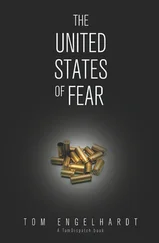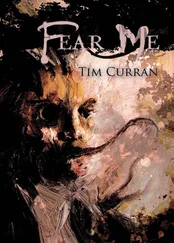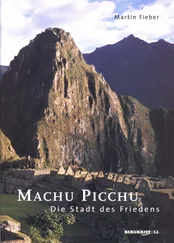“What do you need?”
“Are you an officer of the law?” Tull said.
The man looked at him flatly. “I am.”
Tull offered a disingenuous smile, his lip curling up slightly on the left side. “Sorry, officer. It was a little hard to tell.” He stated the reason for his visit, gave the boy’s name.
“Most of them don’t keep their names,” the sandy-haired officer said. “You took out ads, I suppose?”
“His owner did. This one plays the banjar.”
“Lot of them out there.” To the black-haired man at the desk across the room, he said, “Didn’t you say you saw one the other day?”
The cherry thrower said, “It was a fiddler.” To Tull, he said, “You want a fiddler?”
Tull felt contempt starting up in himself, like a muscle cramp.
The man with the ridiculous hat, who had kept up his commentary during these exchanges, said, “There’s a jig plays banjo and dances in the square. I can show you.”
The sandy-haired man said, “They’ll play in the parks, or down by the docks. Outside the saloons. Niggertown is down on Lombard Street.”
Tull asked if there were police available to help should he need it.
Sandy hair shrugged and said, “It’d have to go before a magistrate.” He looked Tull up and down. “We’ve got our own responsibilities.”
The cherry thrower chimed in, “He’s the captain. What he says goes. If you want to find the Schuylkill Rangers, we’ll put up a nice headstone for you.” Laughed like a schoolboy.
“I believe it’s the law,” Tull said, “that any citizen is compelled to help capture a runaway slave. Even a policeman.”
The captain regarded Tull. “Is that the law? Thank you. We don’t have problems with the Colored here, as long as they don’t cause trouble.”
“It’s the Irish,” the cherry thrower said. “And the rest of the Papal refugees.”
“You can hire out Trogdon,” the captain said. “He’s available at a reasonable hourly rate.”
Tull looked at the doughy man, who brightened instantly.
“Don’t forget your hat,” the cherry thrower said.
They walked through the sun and dappled shade, a beautiful day for most people.
“They make fun of me wearing the hat, but one day we’ll have uniforms. Hizzoner says so. Where do you come from? Do they get the police up well there? I’m interested to know. I wasn’t born in Philadelphia, but I say if I’m here I’ll do my best. Are you planning on staying in town?”
On and on it went, as they approached the square. He had offered this Trogdon a dollar to come with him, and another two if it was the right man and they took him. Now he was sorry. The boy wouldn’t perform so near the police headquarters. Trogdon was going on about a show he had seen somewhere, the minstrels this and that. .
“I love a nigger show,” the half-wit was saying. “The best is at Barton’s. They have a new fellow plays the banjo kneeling down. I saw it the other night. Best in town.” He began singing: “ De boatman dance, de boatman sing . .”
“Be quiet,” Tull said.
“He’s over there,” his companion said, now, pointing across the square to a small group of people watching a Negro dance. Even from across the square, Tull knew that this was not the boy he was looking for. Face blue-black, and thirty years old, easily.
“Is that your man?” Trogdon asked.
“No,” Tull said. “This is the only one?”
“Well. .” the fool looked around anxiously. “There are plenty. But whyn’t we get him anyway?”
Tull reached into his pocket and withdrew some coins. “Here,” he said.
The police put out his hand and took the coins, spreading them on his palm to count. Tull started away.
“Here,” the police said. “I can find more.”
“I know where you are if I need you,” Tull said, walking off.
The sun cast deep shade under the street awnings, the hanging signs clamoring for attention, like beggars asking for handouts. It pressed down upon the construction, the wooden board fences along the building sites, bleached the posters and flyers for theatrical presentations. Impersonators, actors, illusionists, runaways, fly-by-nights. The city was full of trap doors and tunnels, and pedestrians clogged the street. The cart horses had made plenty of mess, and the smell was powerful. Even shit smelled worse in the city than it did in the country.
Two blocks north of Market, a showroom. Tull asked a young man with thinning hair and a long beard if he hired people to do piecework.
The shop man shook his head and said, “No, friend. We have no need for any aid along those lines. The docks are your best chance, I’d say.”
“I didn’t mean for me,” Tull said. “I’m looking for someone who might have done some woodwork part-time. Any of the makers around here hire people like that sometimes?”
“No,” the man said. “Generally we train people and keep them around. A good turner you don’t let go, you know. You might try the dealers down on South Street. They hire part-timers, delivery men.”
Near Callowhill on Second Street, a banjo in the window of a chair maker’s shop.
A cluttered but orderly space that smelled heavily of varnish and sawed wood. A red-haired man in middle age, using a rasp on a chair leg, set the rasp down, asked if he could help him.
“I saw that banjar you got in your window,” Tull said. “You selling that?”
“The one in the window, no. That was one I made for a lark. You play the banjo, you’re welcome to play it. I wouldn’t sell it.”
“You ever get folks asking about it?”
“Oh, once in a while, you know. Especially with the river men — they sometimes play a banjar. I had a Colored fellow came in and played it once. People were surprised I let him come in and play it. I said he had as much right to play it as anyone.”
“What did he look like?”
The man frowned. “What do you mean?”
“I’m looking for a Colored fellow who plays banjo. Light-skinned, about so tall. Green eyes.”
The furniture man found a spot of interest on the arm of a nearby chair, and ran his hand over it twice. Without looking up, he said, “You’re hunting contraband?”
“I’ve been hired to retrieve property.”
The furniture man nodded but said nothing, brushed off the chair one more time.
“You can leave now,” he said.
“Well, just a minute, there, friend. .”
The man’s face mottled red. “You’re nobody’s friend. Get out.”
Tull made a note of the address before walking off down the street.
The barkeep at Dwyer’s Saloon set out cheese and crackers. Across the street, Boone Wharf sat cracking in the sun.
“We got in some nice oysters, out of Baltimore,” he said. “This is about the last of them until October.”
“I’m fine with the cheese, thanks.”
“Suit yourself.”
“Hey, any jig musicians around? I was told there were some good ones down around here. One plays the banjo.”
“They come and they go. Out hunting, are you?”
That was pretty quick, Tull thought. “I enjoy music,” he said.
The bartender kept wiping glasses, unsmiling.
“There’s more fiddle players than banjo,” he said. “One banjo player down by the Black Horse now and then.”
“He a good one?”
“I don’t pay much attention to it,” the barkeep said, putting up the glasses. “He always has a crowd, though.”
“What’s he look like?”
The bartender shrugged.
“Real dark nigger?” Tull said.
The bartender gave him a quick, hard look. “I didn’t get close to him. Dark? No — not so dark. The little I saw, he could have been a Mexican. You want another cider?”
Tull felt a percolation commence in his chest.
Читать дальше










